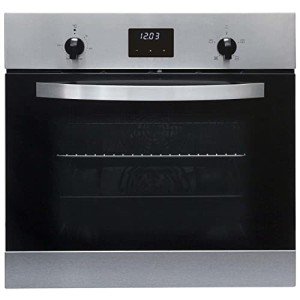10 Startups Set To Change The Sales Ovens Industry For The Better
The Comprehensive Guide to Sales Ovens: Understanding Their Importance, Types, and Best Practices
Sales ovens, a classification of industrial cooking devices, are essential players in the cooking and foodservice market. These appliances, created to prepare food in big amounts effectively, are important in dining establishments, catering services, and other food establishments. This article delves into the importance of sales ovens, their types, and best practices for choosing and using them successfully.
What Are Sales Ovens?
Sales ovens, broadly defined, are cooking gadgets utilized mainly in industrial cooking areas to prepare, bake, or heat numerous food products at scale. Their style allows them to manage higher volume cooking compared to standard property ovens. Offered the nature of food service, sales ovens typically integrate advanced technologies that promote speed, effectiveness, and even cooking.
Significance of Sales Ovens in the Food Industry
Sales ovens play a pivotal role in food production for numerous reasons:
- Efficiency: Sales ovens can cook food more quickly and uniformly than conventional ovens, enabling chefs to prepare meals in less time.
- Consistency: With exact temperature controls, sales ovens ensure that the food is cooked uniformly whenever, keeping quality throughout thousands of servings.
- Versatility: Many sales ovens can handle different cooking approaches consisting of baking, roasting, broiling, and even steaming, making them suitable for diverse menus.
- Energy Savings: Modern sales ovens are frequently designed to be energy-efficient, decreasing operational expenses for organizations.
Types of Sales Ovens
The marketplace offers a range of sales ovens, each fit for specific cooking needs and types of food. Here are the most common types:
Type of Oven
Description
Best For
Convection Ovens
Employ a fan to distribute hot air, making sure even cooking.
Baking and roasting products.
Combi-Ovens
A combination of convection and steam cooking, providing versatility in cooking techniques.
Varied menus requiring steaming and baking.
Conveyor Ovens
Use a moving belt to constantly prepare food, suitable for high-volume operations.
Quick food and pizza.
Deck Ovens
Function separate compartments (decks) that can be individually controlled, providing high performance.
Craftsmen bread and pastries.
Rotisserie Ovens
Developed to slowly roast meat on a spit, offering tender and juicy results.
Roasted meats.
Selecting the Right Sales Oven
Choosing the suitable sales oven for a particular business needs factor to consider of several factors:
- Volume Needs: Assess the volume of food that needs to be prepared. Greater volume implies choosing conveyor or combi-ovens.
- Menu Diversity: Understanding what type of meals will be cooked can assist the selection process. For Hob Online , a bakeshop might require a deck oven, while a restaurant might gain from a stove.
- Area Availability: Measure kitchen space to ensure the ovens fit appropriately and have actually required ventilation.
- Budget plan: Commercial ovens can differ significantly in rate, so establish a spending plan that considers long-lasting functional cost savings.
- Energy Efficiency: Opt for ovens that have energy scores to keep utility costs workable.
Best Practices for Using Sales Ovens
Effectively operating a sales oven includes more than basic use. Here are some best practices to remember:
Regular Maintenance: Schedule regular maintenance to clean and examine the functionality of the oven. Cookers And Hobs guarantees longevity and performance.
Pre-heating: Always pre-heat the oven to the preferred temperature before putting food inside for consistent cooking results.
Utilize Thermometers: For accuracy, use an oven thermometer to ensure that temperature levels stay consistent, especially for baking.
Follow Cooking Times: Adhere to advised cooking times based on the type of food being prepared. Changes may be required for various ovens.
Prevent Overcrowding: Ensure enough area around food products in the oven to permit correct air blood circulation.
The Future of Sales Ovens
As technology advances, so do the abilities of sales ovens. Innovations such as wise innovation, energy-efficient designs, and improved safety features are ending up being more prominent. These improvements assure to improve cooking efficiency while also satisfying sustainability objectives.
Frequently Asked Questions about Sales Ovens
Q1: How do I clean my sales oven?
A: Regular cleaning involves eliminating any food debris, cleaning down surfaces with non-corrosive cleaners, and following specific cleansing suggestions from the manufacturer.
Q2: What's the lifespan of a commercial oven?
A: Typically, a well-maintained business oven can last anywhere from 10 to 20 years, depending upon usage and upkeep.
Q3: Can sales ovens be utilized for baking?
A: Yes, many types of sales ovens, specifically convection and deck ovens, are particularly developed for baking a variety of items.
Q4: Are there energy-efficient options for sales ovens?
A: Yes, a number of producers use energy-efficient models that lower energy consumption without compromising performance.
Q5: How often should I perform maintenance on my sales oven?
A: It's a good idea to conduct routine maintenance checks on a monthly basis or quarter, depending on use levels. Additionally, a thorough examination ought to take place a minimum of every year.
Sales ovens are essential in the modern-day culinary landscape. Cookers And Hobs to cook large amounts of food efficiently makes them vital for dining establishments, catering services, and other food facilities. By understanding the various types, picking the right oven, and adhering to best practices, food service companies can enhance their cooking procedures, improve their offerings, and eventually delight their customers with impressive cooking productions.
